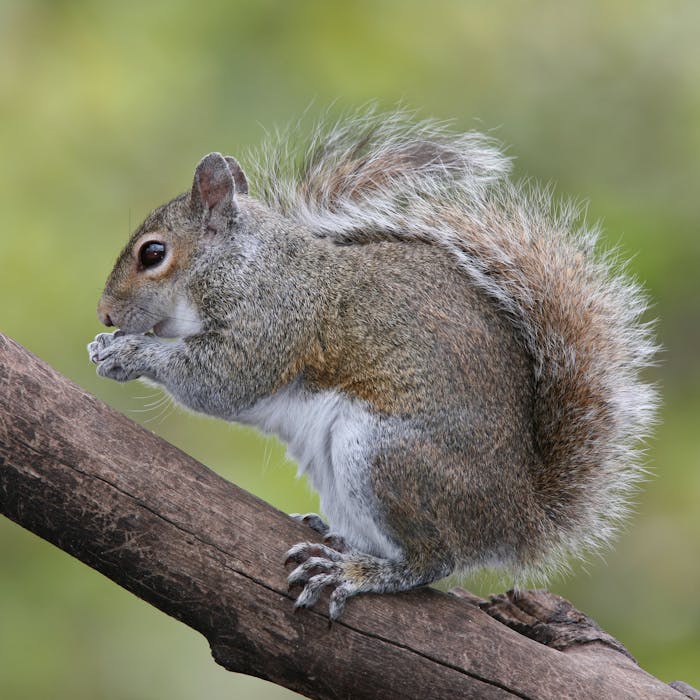
The irrepressible Grey Squirrel
Native to North America, grey squirrels were first introduced to the UK in the 19th century. Notoriously, they have displaced the smaller native red squirrel and are now common across the UK.
The species has spread rapidly and there are an estimated 2.7 million grey squirrels in the UK, and the population is continuing to grow. There are just some parts of north and western Scotland and some islands where they cannot be found.
The introduction of grey squirrels has had a disastrous impact on the UK’s only native squirrel species, the red squirrel. Greys compete with reds for food and also carry a virus known as squirrelpox. While greys are actually immune to the disease, they transmit it to reds, for whom it is fatal. The UK’s only viable populations of red squirrels are in places where greys are rare or absent.
The grey squirrel can be found in woods, gardens and parks, and often proves to be very tame. It is a frequent visitor to gardens with bird tables and feeders.
They will cache their food in autumn if it is abundant and they do not hibernate in winter.
Grey squirrels make a rough nest, called a 'drey' out of twigs, leaves and strips of bark in the fork of a branch, high up in the tree canopy. Females may have two litters of three to four young a year.
The grey squirrel is one of very few mammalian species that can descend a tree head-first. It does this by turning its feet so the claws of its hind paws are backward-pointing and can grip the tree bark.
They also show a great deal of cunning in their behaviour and sometimes use deceptive behavior to prevent other animals from retrieving cached food. They will pretend to bury the object if they feel that they are being watched. They do this by preparing the spot as usual, for instance, digging a hole or widening a crack, miming the placement of the food, while actually concealing it in their mouths, and then covering up the "cache" as if they had deposited the object.
Further reading
Links to external websites are not maintained by Bite Sized Britain. They are provided to give users access to additional information. Bite Sized Britain is not responsible for the content of these external websites.
